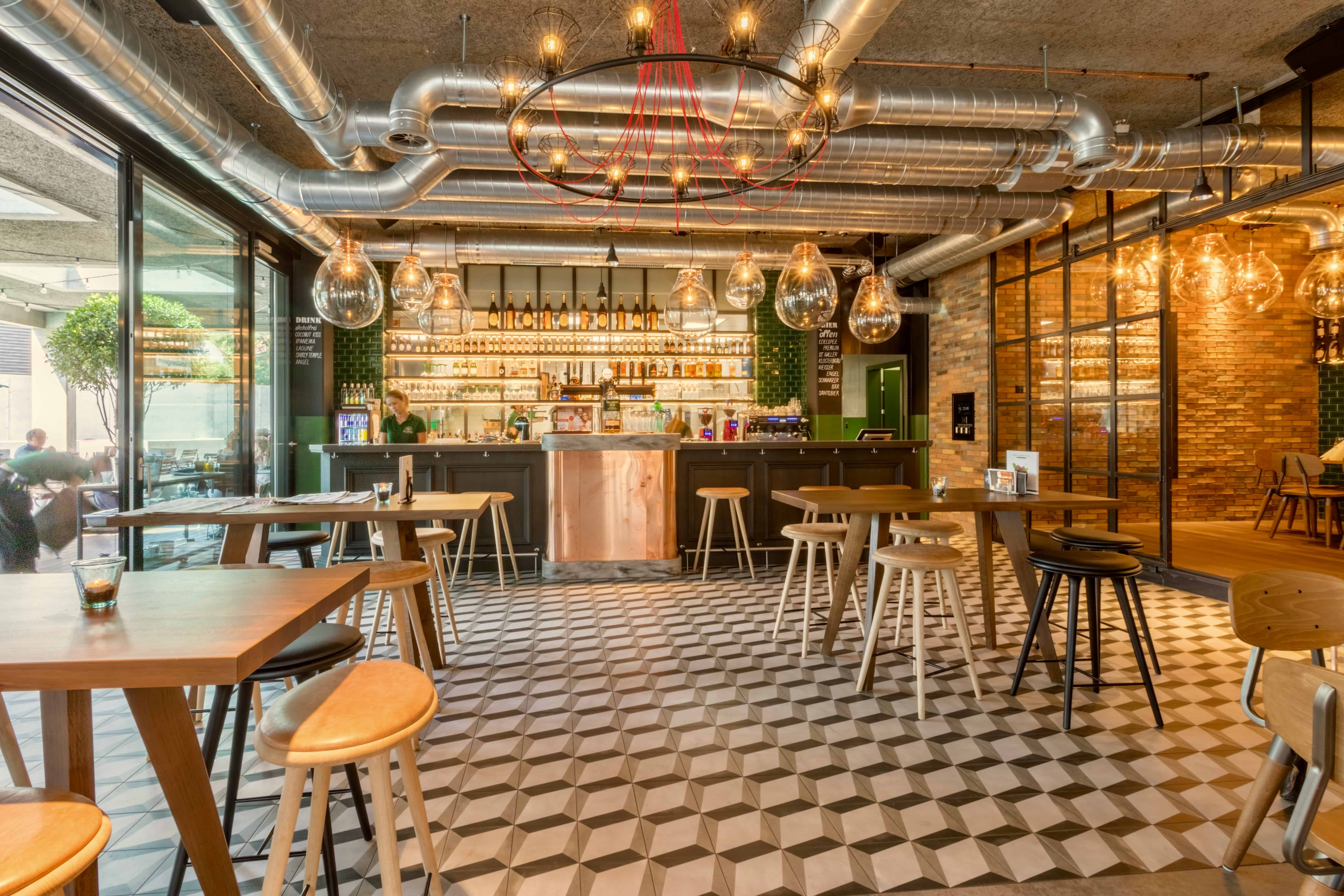
Space Optimization: Sliding Doors for Commercial Spaces
Space Optimization: Sliding Doors for Commercial Spaces
In the intricate dance of architecture and design, every element of a space plays a significant role, especially in the high-stake environments of commercial properties. The aesthetic and functional dynamic of sliding doors within these spaces is vast and transformational. This breath of air beneath the wings of structured establishments can aid in maximizing space, improving traffic flow, showcasing visual appeal, and even enhancing the sustainability of a given structure. Architects, interior designers, and commercial property owners who are eager to unravel the pivotal role of sliding doors in their work should read on as we explore the various dimensions where these fixtures excel.
Introduction to Sliding Doors in Commercial Settings
In the ever-evolving landscape of commerce, the weight of spatial design has never been heavier. Space optimization isn't just a trend or a luxury; it's a critical aspect of creating environments that foster productivity, comfort, and flow for the bustling crowds and professionals within these walls. Sliding doors represent an elegant response to the challenge of space in the commercial domain, providing not only efficient segregation of areas but also an incorporation of modern style and seamless openness.
Importance of Space Optimization in Commercial Environments
Efficient use of space is not just about fitting more into a floor plan; it's about orchestrating an environment that adapts to the needs of its users without feeling cramped or cluttered. In commercial settings, where every inch counts and the balance of functionality and aesthetics is delicate, sliding doors can be an asset.
Overview of Sliding Doors as Stylish and Functional Solutions
Sliding doors are known for combining form with function. Their sleek profiles and smooth operation make them an asset to modern and minimalist design schemes, while their functionality in opening and closing without the need for swing space is invaluable in locations where space is at a premium.
Advantages of Sliding Doors in Commercial Spaces
The advantages of sliding doors in commercial spaces are far-reaching and deeply impactful. They influence not just the spatial economy but also the overall experience within the establishment.
Maximizing Floor Space for Efficient Layouts
The absence of traditional door swings unlocks valuable floor real estate, allowing for a more versatile arrangement of furniture and high traffic areas that are not impeded by open doors.
Enhancing Accessibility and Flow of Traffic
Easy maneuverability through sliding doors enhances the experience of the space, particularly in areas where crowds are common. Their operation is well-suited for maintaining the steadiness of a circulation design.
Creating Visual Impact with Sleek and Modern Designs
Visual appeal can significantly affect brand perception and customer experience. Sliding doors add a touch of contemporary elegance and can be pivotal in creating the right impression for your commercial space.
Applications of Sliding Doors in Commercial Settings
The utility of sliding doors isn't confined to one type of establishment. From the boardroom to the storefront, their adaptability is a hallmark of its commercial appeal.
Office Spaces: Conference Rooms, Private Offices, and Coworking Areas
In the corporate setting, sliding doors offer the privacy needed for sensitive discussions in conference rooms or personal offices, while still maintaining an accessible connection in coworking environments.
Retail Stores: Entrances, Display Areas, and Changing Rooms
The fast-paced nature of retail is well-served by sliding doors that offer unobstructed access for customers and staff. They also provide versatility in changing room layouts and can be fitted with innovative features like auto-lock and traffic sensors.
Hospitality Venues: Hotels, Restaurants, and Event Spaces
For establishments that seek to offer a lavish experience, sliding doors are the perfect blend of functionality and luxury. From welcoming hotel lobbies to intimate restaurant spaces, sliding doors set the stage for superior service and ambiance.
Design Considerations for Sliding Doors in Commercial Environments

Selecting the right sliding door is a critical decision that must consider both aesthetic and practical factors, especially within the confines of a commercial venture.
Durability and Security Features for High-Traffic Areas
Doors in commercial environments will be subjected to a higher volume of use, necessitating robust construction and security measures that ensure the safety of the premises and its occupants.
Customization Options to Reflect Brand Identity and Style
Customization options for sliding doors allow commercial properties to infuse their unique brand identity into the architecture. This could range from the choice of materials to the inclusion of branding or frosted logos on glass panels.
Integration with Smart Technology for Enhanced Functionality
The latest smart technologies can be integrated into sliding door systems to offer capabilities such as remote operation, access monitoring, and automated opening/closing schedules to align with business hours.
Benefits of Sliding Doors for Commercial Use
Understanding the full gamut of benefits that sliding doors offer is essential for decision-makers looking to enhance their commercial spaces with these features.
Flexible Layout Options for Dynamic Work Environments
Commercial spaces that need to adapt quickly to changing functions will find sliding doors invaluable. They can easily transform open areas into private or semi-private zones, and vice versa.
Improved Acoustic Control and Privacy Management
Sliding doors, especially those designed for commercial purposes, often incorporate features that mitigate sound transmission, essential for maintaining a productive and private environment.
Energy Efficiency and Sustainability Features for Green Buildings
The use of sliding doors can contribute to the overall energy efficiency of a building, particularly if they are part of a wider green-building strategy that includes reducing heating and cooling losses by compartmentalizing spaces.
Installation and Maintenance Tips for Sliding Doors in Commercial Settings
Upon selecting the perfect sliding door, the focus turns to ensuring its longevity and optimal performance through professional installation and proactive maintenance.
Professional Installation for Precision and Safety
Given the complexity of some sliding door systems, professional installation is crucial to guarantee the right fit, smooth operation, and the structural integrity of the surrounding wall space.
Regular Cleaning and Maintenance to Ensure Smooth Operation
Regular maintenance, which includes cleaning tracks, adjusting rollers, and inspecting for wear, is essential to the long-term function of sliding doors in commercial spaces.
Addressing Any Issues Promptly to Minimize Downtime
Prompt attention to any operational or aesthetic issues with sliding doors is vital to maintaining the overall functionality and appearance of a commercial space and preventing disruptions.
Conclusion: Enhancing Commercial Environments with Stylish and Functional Sliding Doors
Sliding doors stand as exemplars of versatility in the domain of commercial design. Their significant role in shaping functional, visually appealing, and accessible spaces is undeniable. By understanding the multitude of purposes they serve within the context of diverse commercial environments, you can leverage the potential they hold to transform an ordinary space into one that aligns perfectly with the unique vision and operational needs of your establishment.

